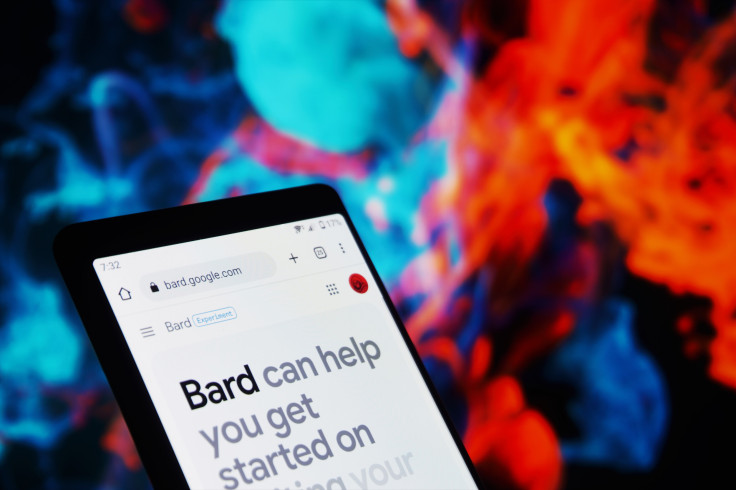New Google Bard feature lets users visualise their search results
Users might be able to submit an image to Google Bard and ask questions about it.

Google has added a new ability to its AI chatbot Bard, which can now respond with images. This is a major sign that Google is sparing no effort to be the world's best search engine. To recap, the company unveiled Bard in March to compete with other AI bots including OpenAI's ChatGPT.
During the recently concluded I/O 2023, Google announced a couple of new features for its AI tool. While the company is still working on some of these features, one of them has been rolled out in the form of image support for Bard.
How does it work?
This update will enable Bard to show images alongside the search results. Bard will first try to find the answer in its database of code and text. If it can't find the answer in its database, the AI tool will then search the web. If it finds a relevant image, Bard will include it in its response. Also, you can directly ask Bard to respond with images. Here are some examples of how to ask Bard to respond with images.
- "Can you show a picture of a sunflower?" (Bard will include an image of a sunflower in its response)
- "What is the Eiffel Tower?" (Bard may include an image of the Eiffel Tower)
- "Show what a goldfish looks like."
However, since this feature is still under development, Bard may not always find the perfect image that aligns with your request. Nevertheless, the new feature will enable users to visualise the search results. Also, this will allow users to communicate their ideas better.
Starting today, Bard will include images in responses for relevant prompts, including when you specifically ask for images. Try asking Bard things like, “Give me landscaping inspiration for my small city backyard.” pic.twitter.com/zBDwQRo7jd
— Google (@Google) May 23, 2023
The image is presented below the search results. If you search for a list, the image will appear below each bullet point and the favicon will be on the top right side of the image. You can then tap the link to open them. Also, if you hover over the links, they will show the URL. According to a 9To5Google report, a right-click menu is also available.
Google is reportedly prepping to announce more visual features in the coming days. Developer DataChazGPT recently indicated that the company has revealed its new AI search engine dubbed Project Magi to rival ChatGPT, Bing AI, and other chatbots. Moreover, the tipster claims it will have a ChatGPT-like interface, and provide instant answers.
[JUST IN]
— DataChazGPT 🤯 (not a bot) (@DataChaz) April 17, 2023
Google has just revealed Project "Magi," their new #AI search engine to rival #ChatGPT, Bing Chat, and the likes! 🤯
- It will have a chat-like interface, similar to ChatGPT.
- There are rumours that Google may be replacing their 10-result SERPs with Magi to provide… pic.twitter.com/6g7dPShQAo
The folks at GizChina suggest Google could soon allow users to submit images to Bard and ask questions about them. For instance, you will be able to submit pictures of two dog breeds and ask Bard to differentiate between them. Aside from this, Bard is reportedly on the verge of getting image generation via Adobe Firefly.
Google to start testing ads within generative AI search results
To those unaware, Google Bard now supports more languages including Korean and Japanese. It also has a dark mode. In addition to that, Google is trying to find new ways to use AI to generate revenue. Overall, it looks like the Alphabet-owned tech giant wants to change how we search for information on the web.
According to a Reuters report, the tech giant recently announced that it will start testing ads in generative AI search results. This could be Google's attempt to compete with Microsoft in the search ad space. According to MAGNA research, AI can efficiently change the way advertisers reach their consumers through search engines.
Google to test ads in generative AI search results - Reuters
— Kaushik (@BigBullCap) May 23, 2023
In fact, the report suggests the market will probably grow to $286 billion (about £231,631,972.00) in 2023. This development will allow users to search for products like "hiking backpacks for kids" and AI will respond with an ad that matches their specific query. Moreover, AI might provide tips for choosing the best backpack for kids.
In an interview, vice president and general manager at Google, Jerry Dischler said this new, helpful, and simpler way to interact with Google search will enhance the overall user experience. Dischler believes the newfangled method will also create new commercial opportunities.
However, with Google reportedly planning not to offer Bard in the EU and Canada, there's a possibility the new version of Google search will be limited to a few regions, at least in the beginning.
© Copyright IBTimes 2025. All rights reserved.






















